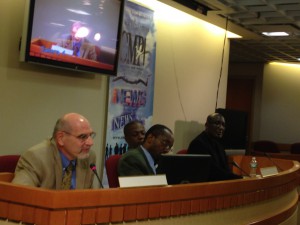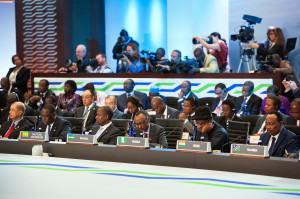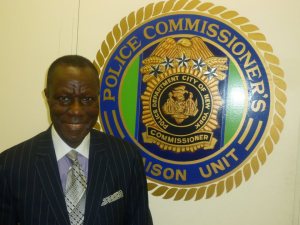The ongoing conflict in the Middle East between Israel and Palestine took center stage in New York at an interfaith dialogue and Iftah dinner organized by Nusantara Foundation and Peace Islands Institute in honor of a visiting youth group from Turkey, Iraq, Egypt, Yemen, and Lebanon.
The panel made up of Imam Shamsi Ali, President of Nusantara Foundation, Rabbi Marc Schneier; President of Foundation for Ethnic Understanding; and Tom Cutts of the American Clergy Leadership Conference fielded questions from invited guests on wide ranging issues on ecumenism and conflict resolution.
The legitimacy of Hamas in Gaza and the right of Israel to security received different responses from the panelists. Imam Ali was of the view that the Muslims in the Middle East were unhelpful to the Palestinian cause while disunity between Hamas and Palestinian Authority continues to complicate prospects of enduring peace in the region. On the other hand, Rabbi Schneier emphasized that Hamas was a terrorist organization determined to destroy the state of Israel but paid glowing tribute to the Leader of the Palestinian Authority, Mahmoud Abbas for his courage in defusing anti-semitic goals in the region.
Imam Ali identified several factors that constituted a cog in the wheel towards interfaith dialogue. Among them are politics, misreading of history, misinterpretation of religious texts and the news media that often focus on the dramatic instead of the pragmatic.
Ali, originally from Indonesia (the most populous Muslim nation), provided several anecdotal evidence to convince the audience that all religions preach peace and mutual coexistence but the practitioners of these different faiths manipulate doctrines to achieve selfish purposes.
On the part of the media, the Imam narrated an incident where he joined forces with a Rabbi to condemn hatred perpetrated by Muslims and did not receive media attention but noticed the next day that New York Times gave a front page coverage of a religious leader in Pershawa who called for the demolition of synagogues. Such dichotomy in media coverage is telling and does not help in building peace among different religious groups.
Rabbi Marc Schneier of the Foundation for Ethnic Understanding echoed Imam Ali’s sentiments and emphasized that all humanity shares “common faith and fate”. As a Jewish man, Schneier stated, “I have taken it upon myself to combat islamophobia and fight anti-Muslim bigotry and I expect other adherents of other religions to do same”.

Schneier and Shamsi, co-authors of a book: “Sons of Abraham” made references to the claims by Jews as “the chosen people” and Muslims’ claims to be the “best religion” and reminded the audience that such semantics if misunderstood could fuel discord among followers of different faiths.
Tom Cutts of the American Clergy Leadership Conference used the occasion to raise historical misunderstanding between Jews and Christians in relation to Jesus Christ but warned that past differences could not define future preferences for peace and mutual understanding.
A question from a member of the audience and visiting student from the Middle East roused the audience. He wanted to know why Hamas is demonized in spite of being a legitimately elected regime in Gaza. The panel did not do justice to that question as each speaker remained cautious in their response, a further evidence of the perennial difficulty in resolving the Middle East crises.
The quibble that transpired in the hall reflected what is happening in the larger global community where United States and Europe are divided in confronting the peace process in a pragmatic and impartial manner.
For example, Israel’s response to routing Hamas militants has led to a disproportionate show of force with over 500 Palestinians killed and houses and places of worship demolished in comparison with Israel’s lesser casualty rate could not force the international community to halt Israel’s killing of a fly with sledge hammer.








Yes indeed "USA and Europe are divided in confronting the peace in a pragmatic and impartial manner". This is the problem. Hamas, the Likudnicks and their extreme wing coalitions continue to avoid, evade, elude and circumvent any move for peace. They are so arrogant and obstinate in furthering the intransigence and truculence.
My heart goes to the kids and grand kids of these men who will continue to live in future with this entrenched hatred of each other, when the sun might have set for these men. May God help their kids to learn and live in peace.